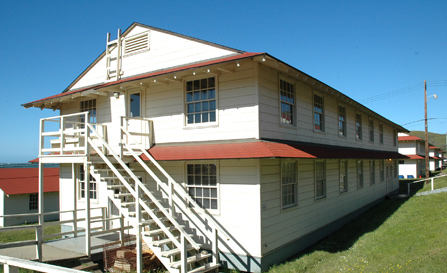
Introduction
Thinking about adding a deck to your home? It’s a fantastic idea. A well-built deck not only enhances your living space but also provides the perfect place to relax, entertain, or simply enjoy the outdoors. However, one of the first questions homeowners tend to ask is: How long does it take to build a deck?
The answer varies. Some decks can be constructed in just a few days, while others might take weeks. The depends on several factors—such as the deck’s size, the materials chosen, the weather, and the experience of the builders.
In this guide, we’ll break down everything you need to know about the time it takes to build a deck, whether you’re doing it yourself or hiring a professional. This will help you plan your project efficiently and understand what to expect along the way.
Understanding the Deck Building Timeline
Average Timeframes for Deck Construction
For most standard backyard decks, construction generally takes between 1 to 3 weeks. Smaller, simpler decks (like ground-level platforms) might take as little as 2 to 4 days, especially if a professional crew is hired. On the other hand, larger, custom decks with multiple levels, built-in features, or unique materials might take anywhere from 4 to 6 weeks.
Here’s a general overview of construction time for different deck types:
- Basic Platform Deck: 2–5 days
- Mid-Size Deck (with railings and stairs): 1–2 weeks
- Large or Multi-Level Deck: 3–6 weeks
These are general estimates. External factors, such as permits or adverse weather, can impact the Timeline.
Pro tip: To speed things up, have your materials and permits ready before construction begins.
Factors Influencing Deck Building Duration
Deck building projects are unique, and the can vary based on several key elements. Below are some of the main factors that can either prolong or speed up your deck’s construction:
- Size of the Deck Larger decks take more time to build. For instance, a 10×10 deck might be finished in under a week, but a 20×20 deck with stairs, wraparound railings, and a pergola could easily double the time required.
- Design Complexity Simple designs are quicker to complete. However, if your deck includes curves, multiple levels, custom railings, or built-in seating, additional time and precision are necessary. More features mean Timeline more labor.
- Type of Materials The materials chosen for the deck can influence the build time. Pressure-treated lumber is quick to install, while composite decking requires more time due to the need for hidden fasteners and precise spacing. Hardwood materials, like Ipe, can slow things down because they require pre-drilling and finishing.
- Weather and Season Weather can delay a project significantly. Rain, snow, or freezing temperatures all impact the construction process. While spring and early summer are prime building seasons, they also come with unpredictable weather. This can lead to delays and slower progress.
- Permit and Inspection Delays Many towns require a permit before beginning deck construction. If your local office is experiencing a backlog, getting approval may take anywhere from a few days to several weeks. Additionally, inspections during the building process can halt work temporarily.
- DIY vs. Professional Builders Taking the DIY route typically takes longer. If you’re working on the weekends, your project could stretch over multiple weekends—potentially doubling the time it would take a professional crew to complete the same deck. However, doing it yourself can save on labor costs if you have the necessary tools and experience.
Pre-Construction Considerations
Before construction begins, there are a few essential planning steps that can either help or hinder your timeline. Here’s what you should consider upfront:
Planning and Design Phase
Effective planning can save a lot of time in the long run. Decide on the size, shape, materials, and features of your deck before construction begins.
Key planning elements include:
- Deck layout: Choose between a square, L-shaped, or multi-level design.
- Material choices: Will you use pressure-treated wood, composite, cedar, or PVC?
- Special features: Will the deck include built-in seating, lighting, or a pergola?
The more detailed your plan, the quicker your contractor (or you) can get started. Many professionals use design software to create 3D renderings—request one if you’re working with a contractor to avoid delays due to last-minute changes.
Obtaining Necessary Permits
Building a deck usually requires a permit, even if it’s not attached Timeline to your home. The approval process can take anywhere from 1 day to 4 weeks, depending on your area’s building department workload.
What you’ll need for the permit:
- A detailed site plan
- Deck design specifications (dimensions, materials, structure)
- Zoning information (how close you can build to your property lines)
Skipping this step could result in costly fines. Many cities—such as Atlanta, Charlotte, and towns in Texas and Ohio—are cracking down on unpermitted builds. Check with your local building office before starting any construction.
To save time, consider hiring a contractor who handles permits—they often know how to expedite the process.
Construction Phases and Their Durations
Once the planning and permitting are complete, construction begins. Here’s a breakdown of each phase and how long it typically takes:
Site Preparation and Foundation Work
Time: 1–3 days (depending on terrain and deck size)
This step involves clearing the site, leveling the ground, and preparing the foundation. If your yard is sloped or has obstacles like tree roots or old concrete, this step might take longer in Timeline.
Framing and Structural Assembly
Time: 2–5 days
The frame is the backbone of your deck. Builders install posts, beams, and joists, constructing the basic structure. If everything is level, this stage progresses quickly. A simple, single-level frame might take only two days to complete.
Decking, Railings, and Finishing Touches
Time: 2–7 days
With the frame in place, it’s time to install the decking boards, add railings, build stairs, and finish the deck.
- Decking installation: Composite boards take longer to install than wood due to hidden fasteners.
- Railings: Custom railings require additional time.
- Staining and Sealing: Wood decks need to be stained, painted, or sealed, which may take extra time for drying or curing.
If your deck is made of wood, it’s a good idea to wait a few days before applying a sealer or stain to ensure moisture levels are balanced.
DIY vs. Professional Deck Building: What to Expect
Whether you’re building the deck yourself or hiring a professional, the timeline can vary significantly. Here’s a comparison of both options:
Time Commitment for DIY Deck Builds
Estimated Time: 2–6 weekends or more
Building a deck on your own can be satisfying, but it requires significant time and effort. Most DIYers work on weekends or in the evenings, which stretches the timeline considerably.
Additional time considerations include:
- Learning as you go, especially if you’re new to deck building
- Gathering materials and tools
- Making corrections for mistakes
- Waiting for inspections (if necessary)
A small, ground-level deck might take 2–3 weekends, while larger or elevated decks could take 4–6 weekends or more.
Time Commitment for Professional Deck Builders
Estimated Time: 3 days to 3 weeks
Professional contractors have the experience and tools to complete a deck more quickly. They often work in teams and can handle permits, material sourcing, and inspections with ease.
Larger or more complex designs that might take months for a DIYer could be completed by a pro in 1–2 weeks. While it costs more, hiring a contractor usually saves time and reduces Timeline the likelihood of costly mistakes.
Tips to Speed Up Your Deck Project Without Cutting Corners
If you want your deck completed faster without compromising quality, here are a few tips to keep the process moving:
Finalize the Design Before Construction
Avoid making last-minute changes. Altering the design mid-project can delay the build and result in additional costs.
Order Materials in Advance
Don’t wait for delivery on critical materials—order everything before construction begins to avoid unnecessary delays.
Hire Experienced Local Contractors
Experienced local professionals are familiar Timeline with the permit process and know how to navigate potential weather delays, helping to keep your project on schedule.
Prepare Your Yard Before Work Begins
Clear any furniture, plants, or obstacles from the construction site. A clean worksite saves valuable time.
Common Delays and How to Avoid Them
Even well-planned projects can face setbacks. Here are some common delays and how to avoid them:
Weather Conditions
Rain, snow, and extreme temperatures can delay construction. It’s best to schedule your build during seasons with stable weather.
Permit and Inspection Delays
Submit your paperwork early and ensure all details are correct to avoid holdups. A contractor familiar with the permit process can speed this along.
Material Shortages
Supply shortages can happen, especially during peak building months. Order materials early and confirm delivery times with suppliers.
Changes During Construction
Changing materials or features midway through the build resets the clock. Lock in your design before work begins.
FAQs About Deck Building Timelines
How long does it take to build a deck if I’m doing it myself? A DIY deck typically takes 2 to 6 weekends, depending on size and complexity. A ground-level deck might take a couple of weekends, but larger, multi-level decks could take months.
How long does it take to build a deck with a contractor? Professional builders typically finish decks in 1 to 3 weeks. Larger, custom decks could take up to 4 to 6 weeks.
What materials take the longest to install? Composite decking and hardwoods like Ipe take longer to install due to the need for hidden fasteners or pre-drilling.
Can weather delay the deck-building process? Yes, extreme weather can delay construction. It’s best to build during mild seasons like spring or fall.
Is it possible to get a deck built in less than a week? Yes, but typically only for smaller, simpler decks. Larger or multi-level decks require more time. Rushing a build might compromise its quality.






